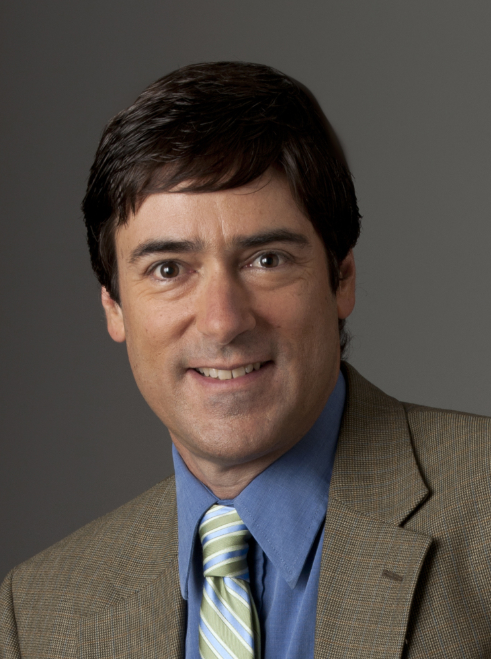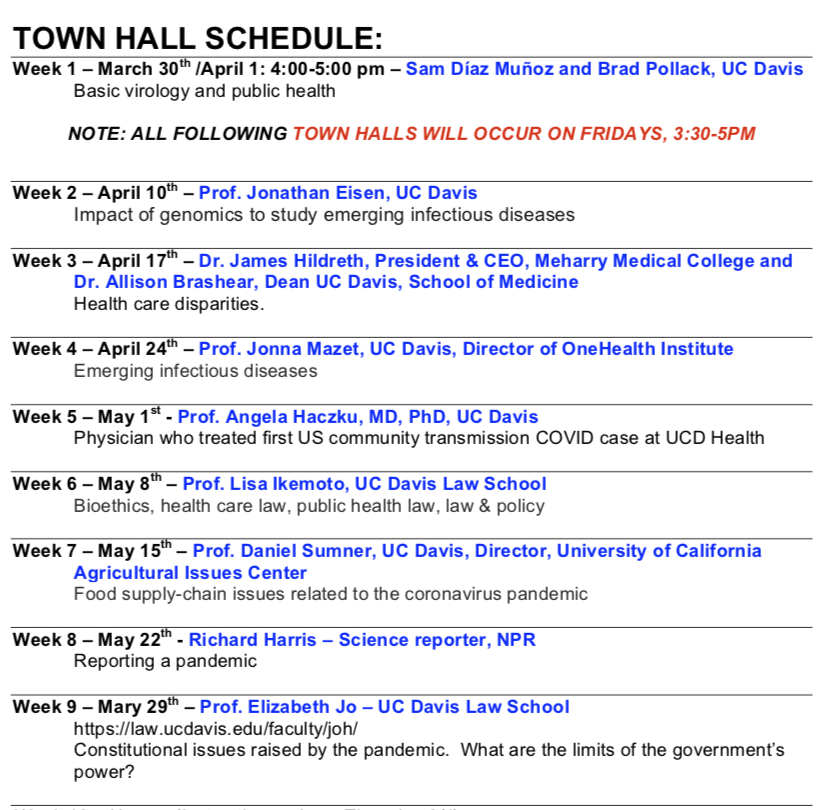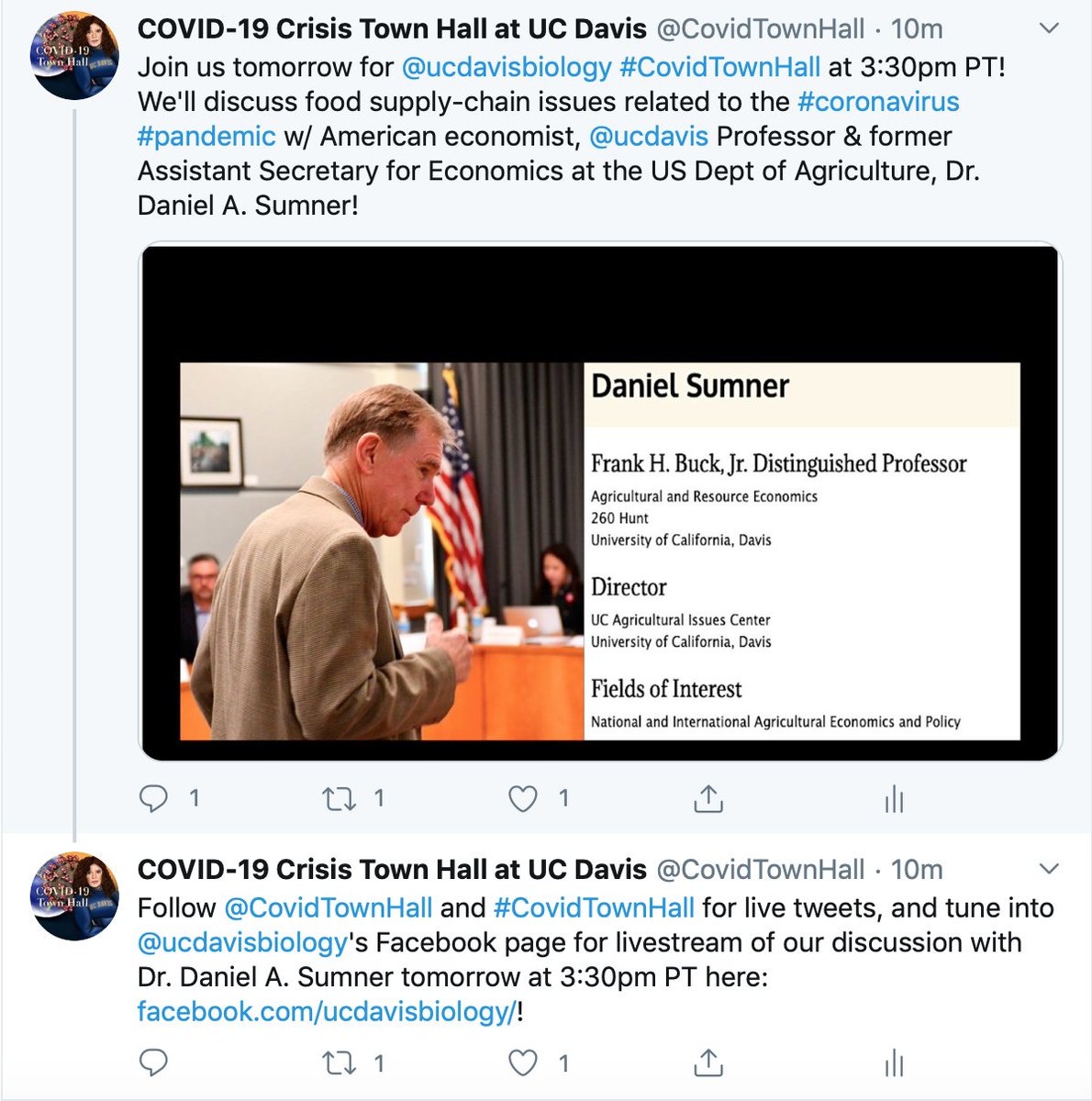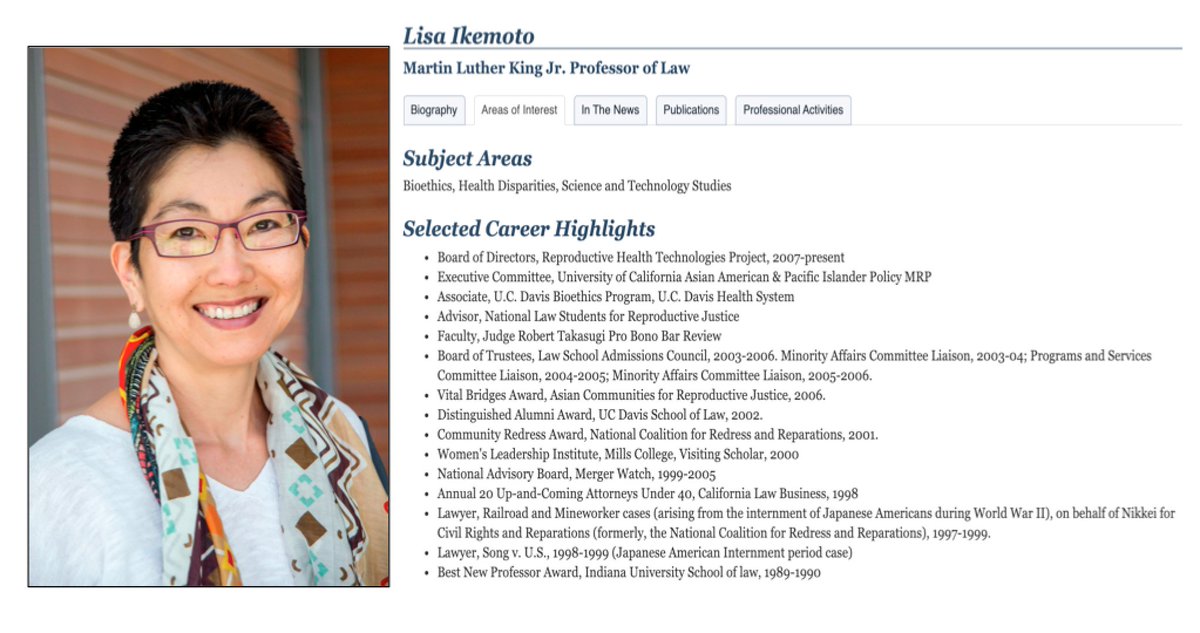
During the #COVID19 pandemic, Richard's reporting has followed a wide range of issues relating to #coronavirus. You can listen to one of his reports here: npr.org/sections/healt…
Q from Dr. Mark Winey: How to become a science reporter?
A: It's a viable career option. Journalism is struggling a bit, and COVID-19 has accelerated the demise of some newspapers. #CovidTownHall
Thoughts: many mediums to do #scicomm -- I will share some later! #CovidTownHall
A: I can write the first chapter, but that's about it, because the pandemic is hard to predict. In 2003, I covered the last major coronavirus outbreak (#SARS). Visited Beijing, China during that time. #CovidTownHall
I'll get that right from here on out.
Harris: I haven't had a great break from #coronavirus, but sometimes there's hopeful news about antibodies, vaccines, etc. #CovidTownHall
Asked about how to communicate science, Harris: I can't boil down the "art" of science journalism. But one thing I try to do is always talk about what we don't know. It's important to say here's what we know, here's what we don't know.
A: It's created a lot of tension. Some of my colleagues have reported on questions re: "where is the CDC right now? What happened?"
A: When there is a story that's taken off, we take a thoughtful look at it. It's a judgement call from many levels of the organization. Our science desk has daily meetings. #CovidTownHall
A: I've had good conversations over email with people who send me emails that sound initially hostile. We live in a complex place & we should embrace that.
Dr. Kaplan: Maybe sometimes it's more about listening to other people.
Interestingly, research from Pew says that *more* hope/support for science coming out of this situation. People bring optimism about vaccines to science.
A: It's a flawed process. Rewards of peer review for scientists are misaligned (work for free). There's many examples of it failing to catch problems in papers. There's also some consensus that it can prevent new ideas from being published.
Dr. @BeccaCalisi: Another big hurdle is that there's bias against women and other minorities.
Harris: Yes, people bring their prejudices to the process.
Harris: Even after a paper has been published, I'll send it around to other scientists in the field to ask for their take.
Dr. @BeccaCalisi: Those scientists are speaking up already, but there's not too many of us. Most scientists are white men. We have to work harder to be heard.
Harris: Writing is something that gets better with time. If you're interested in science communication, the more you write, the better off you'll be.
Dr. Winey: Communication is key for so many fields. #scicomm





